Botswana Walking, Canoeing and Safari
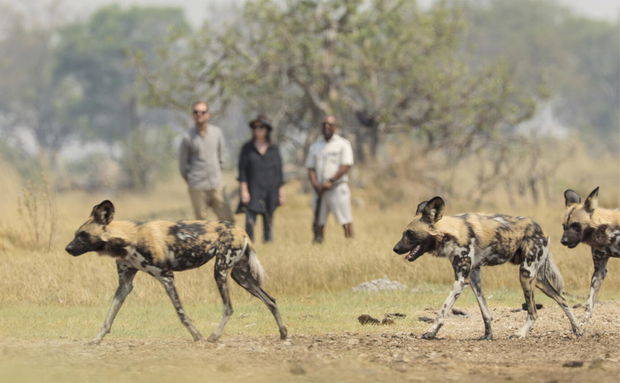
Walk across ancient floodplains where wildlife moves to timeless rhythms.
Drift through secret waterways by mokoro, and discover Africa’s wild heart in its purest form.
Africa’s Untamed Paths – A Journey for the Active Soul
This is a journey for those who seek more than sightings. It’s for travelers who want to feel the earth beneath their feet, paddle through silent waterways, follow ancient animal trails, and listen to the wild speak in its own timeless voice.
Across Botswana’s richest wilderness areas — from the Okavango Delta to the Khwai Private Reserve and the great Chobe River — you’ll experience Africa not from the back of a vehicle, but from the ground, the water, and the heart.
Every step, every paddle stroke, every breath of fresh morning air draws you deeper into the rhythm of the land. You’ll walk across floodplains alive with life, drift by mokoro through waterlily gardens, track elephants at sunset, and sit quietly while the stars ignite the African night.
This itinerary has been carefully designed for active travelers who value authenticity, conservation, and true connection — those who understand that the greatest journeys are not measured in miles, but in moments.
Travel slowly. Feel deeply. Discover Africa’s untamed paths.
Gallery
Itinerary
Day 1
MaunLong before Maun became the bustling gateway to the Okavango Delta, it was a true frontier village — a gathering place for hunters, explorers, and adventurers preparing for, or returning from, expeditions into the wild. Beneath tin-roofed verandas and dusty baobab trees, they met clients, outfitted safaris, and later swapped stories — some true, some wildly embroidered — over drinks in the town’s lively, ramshackle bars.
Today, Maun’s frontier spirit endures, but it has evolved. Timber beams that once supported hunters' lodges now shade cafés serving barista coffee and smashed avo croissants. The Duck Inn and Riley’s Hotel — once the heart of a rough, dusty outpost — now host a new generation of travelers drawn to Botswana’s living wilderness. Maun has grown, changed, and thrived, but its soul remains stitched into the land, the river, and the easy smiles of its people.
After arriving in Maun, you’ll settle into Cresta Riley’s Hotel, an enduring institution at the heart of town, where the echoes of early safari pioneers still linger in the architecture and atmosphere. The rest of the afternoon is yours to relax, explore nearby shops on foot, or simply soak in the feeling of Africa beginning to unfold around you.
The following morning, after breakfast, you’ll join a guided walking tour of Maun, designed to reveal the town’s layered history and its vibrant modern life. Your guide will bring the past alive as you visit historic buildings where rugged adventurers once gathered, telling tales that grew taller with every retelling. You’ll pass by old haunts now transformed into colorful cafés and art spaces, tracing how Maun evolved from a dusty village to a creative hub for safari travelers and local artisans alike.
The walk winds through local markets and hidden workshops, where you’ll meet basket weavers carrying forward centuries-old traditions and encounter young artists redefining Botswana’s cultural future. It's a journey through time and community — where past and present live side-by-side — and a perfect way to ground yourself before your journey into the wilderness.
Expert Tips
- Dinner Recommendation: For a relaxed and memorable first evening, we recommend dining at Marc’s Eatery — a favorite among locals and safari guides alike. Tucked away in a garden setting, Marc’s offers fresh, beautifully prepared meals featuring local ingredients and an easy-going atmosphere.
- Opening Hours: Please note that Marc’s closes early by city standards — the kitchen typically winds down around 20:30, so we suggest heading over for dinner by 18:30–19:00 to enjoy a leisurely meal.
- Getting There: Cresta Riley’s Hotel can easily arrange a short taxi transfer to Marc’s and back. Taxis in Maun are informal but reliable when booked through your hotel. Payment is made in cash, and fares are inexpensive — we recommend carrying small denominations for convenience.
- Early to Bed: With an exciting safari departure the next day, most travelers find an early evening in Maun is the perfect start — giving you time to settle into the rhythms of Botswana before stepping into the wild.
Day 2 - 4
Okavango DeltaAfter your light aircraft flight from Maun, you’ll touch down on a remote airstrip in the heart of the Okavango Delta — a landscape so wild and pristine that even the air feels different. Greeted by your guide, you’ll take a short open-vehicle transfer through shimmering grasslands and shady woodlands to reach Footsteps Across the Delta.
This intimate, traditional tented camp is unlike anything a conventional safari offers. Here, the focus returns to the oldest, purest form of safari: walking. Led by expert guides, you'll explore the Delta on foot, following game trails, reading the land, and learning to see the wilderness through the eyes of those who live by its subtle signs.
Each day begins with the light of dawn spilling across the floodplains, as you set out on morning walks that reveal the Delta’s hidden dramas — a hyena's track in the sand, a journey of giraffes threading through mopane trees, the bright flash of a lilac-breasted roller taking flight. There are no set routes, no rush. The wilderness leads, and you follow.
During your stay, you’ll also have the opportunity to experience a mokoro excursion, gliding silently through the Delta’s mirror-like channels in a traditional dugout canoe. Poled gently by your guide, you’ll drift among papyrus reeds and water lilies, seeing the Okavango from the perspective of its original travelers — and feeling its timeless peace.
Evenings at Footsteps are simple and beautiful: sundowners by the fire, storytelling under a sky thick with stars, and the quiet pleasure of knowing you are deep within one of Africa’s last great wild places, moving through it with respect, humility, and wonder.
Expert Tips
- Light Aircraft Travel: Baggage on light aircraft flights is limited to 15 kg (33 lbs) total per person, in soft-sided bags only. This ensures safety and balance in the small planes. (Don’t worry — the camp provides everything essential for comfort.)
- Walking Pace: Walking safaris are conducted at a relaxed pace, suitable for most active travelers. Sturdy walking shoes, neutral-colored clothing, and a sense of curiosity are the perfect gear.
- Mokoro Excursion: While the primary focus at Footsteps is walking, a mokoro outing is usually offered during your stay — conditions permitting. It’s a peaceful, unforgettable way to experience the waterways from the waterline.
- Disconnect to Reconnect: Footsteps operates without Wi-Fi, offering a rare chance to unplug from the digital world and reconnect with the natural one. It's amazing how much you hear, see, and feel when the noise of everyday life falls away.
Day 5 - 7
Moremi Game ReserveLeaving the floodplains of the Okavango Delta behind, your journey carries you northeast into the Khwai Private Reserve — a vast and untamed landscape where river channels carve through ancient woodlands, lush grasslands, and open savannah. Here, on the shifting frontier between land and water, you’ll find Mogogelo Camp, a hidden gem where wildlife moves freely and the spirit of true safari still thrives.
Life at Mogogelo moves to the timeless rhythms of the bush. Each day offers a different way to explore:
- Morning and afternoon game drives take you deep into prime wildlife territory, tracking lions, wild dogs, elephants, and elusive leopards.
- Walking safaris allow you to step quietly into the wilderness, learning to read the land’s subtle signs and feel the ancient connection between humans and nature.
- A mokoro excursion — included in your stay — lets you drift along Khwai’s gentle waterways, poled silently by your guide, catching glimpses of painted reed frogs, iridescent kingfishers, and the secret life of the Delta’s margins.
Khwai is a land of abundance, but it’s the small details that often leave the most lasting impressions: the glint of a fish eagle’s eye as it soars overhead, the delicate tracing of an otter’s tracks at a water’s edge, the scent of wild sage crushed underfoot on a morning walk.
Evenings at Mogogelo are pure safari magic. As the last light bleeds across the sky, you’ll gather around the fire with fellow travelers, the night alive with distant lion calls and the whisper of elephants moving through the reeds. With just a few tents tucked into the wilderness, the camp offers a deeply personal and unfiltered experience of Africa’s wild heart — raw, beautiful, unforgettable.
Expert Tips
- Private Reserve Freedom: Being in a private concession means your guides have the flexibility to go off-road for special sightings, offer night drives after sunset, and tailor each day's activities to the movements of wildlife — something not possible in national parks.
- Mokoro Excursion Included: Your stay includes one mokoro outing — a tranquil journey through the Khwai waterways in a traditional dugout canoe. Additional mokoro excursions may be available depending on seasonal water levels and guest interest.
- Walking Safaris: Morning walks are available with expert armed guides. Walks are tailored to the group's comfort level, focusing on appreciating the smaller wonders of the bush: tracks, plants, birdlife, and the interconnectedness of the ecosystem.
- Photography Paradise: Khwai’s diverse habitats create exceptional photography opportunities, especially in the golden early morning and late afternoon light. A good zoom lens and a keen eye are all you’ll need.
- Bring Your Own Binoculars: We recommend bringing your own binoculars to fully enjoy both wildlife viewing and birdwatching. Khwai is home to an astonishing array of species — some of which you’ll appreciate best from a distance.
Day 8 - 10
Chobe River FrontYour journey continues northward, where the waters of the Chobe River draw life from every corner of the land. As you approach Chobe Elephant Camp, perched on a slight rise overlooking the floodplains, the landscape feels grander, the herds more immense, and the river’s pull stronger with every kilometer.
This is a place where elephants reign — thousands of them moving across ancient migration routes, gathering at the river’s edge in the golden light of late afternoon. Your days at Chobe Elephant Camp will be shaped by the great movement of wildlife to and from the water.
- Boat safaris on the Chobe River reveal elephants swimming across channels, crocodiles basking on sandbanks, and dazzling flocks of carmine bee-eaters lining the riverbanks.
- Game drives explore the riverfront and adjacent woodlands, offering opportunities to witness lion prides, buffalo herds, and perhaps even a leopard lounging in a fever tree.
- Walking safaris on the camp’s private concession allow you to step quietly into the bush, gaining a deeper understanding of the smaller wonders of the ecosystem — from ancient baobabs to the intricate worlds of insects and birds.
Evenings here are painted in soft, wild colors. As the sky burns into dusk and the river reflects the last light of day, you’ll gather around the fire pit or relax on the lodge’s wide verandahs, soaking in the timeless drama of Africa unfolding before you.
Chobe Elephant Camp is built with sustainability in mind, using local materials and traditional design to create a camp that blends beautifully into its surroundings. The atmosphere is warm and unfussy — a genuine celebration of Africa’s wilderness, hospitality, and soul.
Expert Tips
- Boat Safari Magic: The late afternoon boat safaris are a highlight — not only for the incredible concentration of elephants, but for the surreal beauty of the river at sunset. Have your camera ready; the reflections and golden light are unforgettable.
- Quiet Mornings on Foot: Walking safaris are available on the camp’s private concession. These shorter bush walks offer a fresh perspective, perfect for slowing down and tuning into the quieter rhythms of the wilderness.
- Best Times for Wildlife Viewing: Early morning and late afternoon are the prime wildlife activity periods. Midday tends to be quieter (and hotter), offering a great chance to relax at camp and enjoy birdwatching from the comfort of your verandah.
- Pack Light Layers: Evenings and early mornings can be surprisingly cool, especially along the river. Light layers and a windbreaker will keep you comfortable during early activities and boat rides.
- Sustainability Focus: Chobe Elephant Camp is one of the region’s pioneers in eco-sensitive construction and operation. It’s a small but meaningful choice that helps protect this extraordinary environment for future generations.
Day 11
DepartureOn your last morning in Chobe, the river mist lifts slowly as the first light spills across the floodplains. Elephants make their way down to drink, silent but for the soft splash of water and the low rumble of distant herds.
There’s a sense of stillness now — a quiet honoring of everything you have seen, felt, and become a part of during your journey across Botswana. You are no longer just a visitor. The rhythms of Africa have found a place within you.
After breakfast, a short transfer will take you to Kasane Airport (BBK) for your onward connections. You carry with you more than memories: you carry the feeling of walking with the land, drifting with the waters, and standing quietly as wild places revealed themselves.


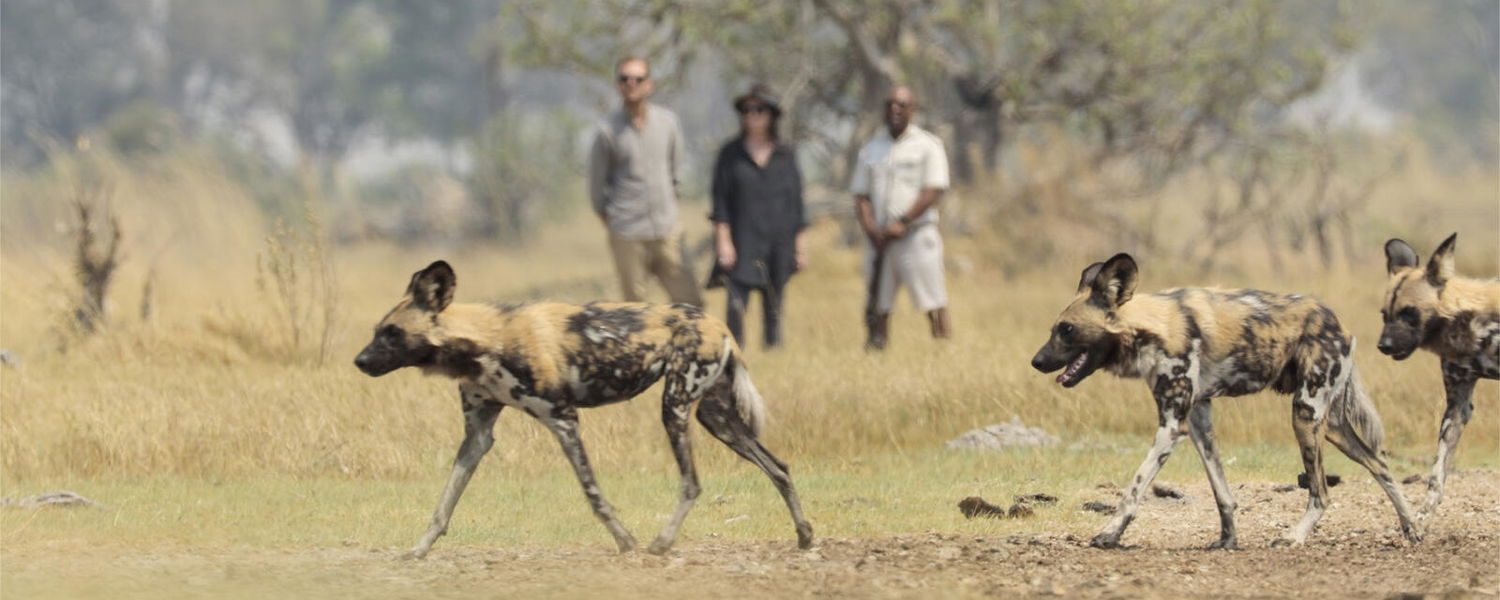
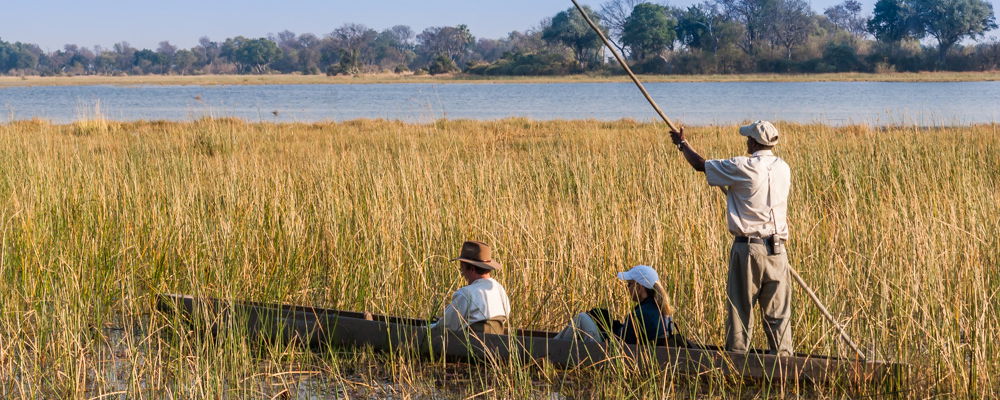
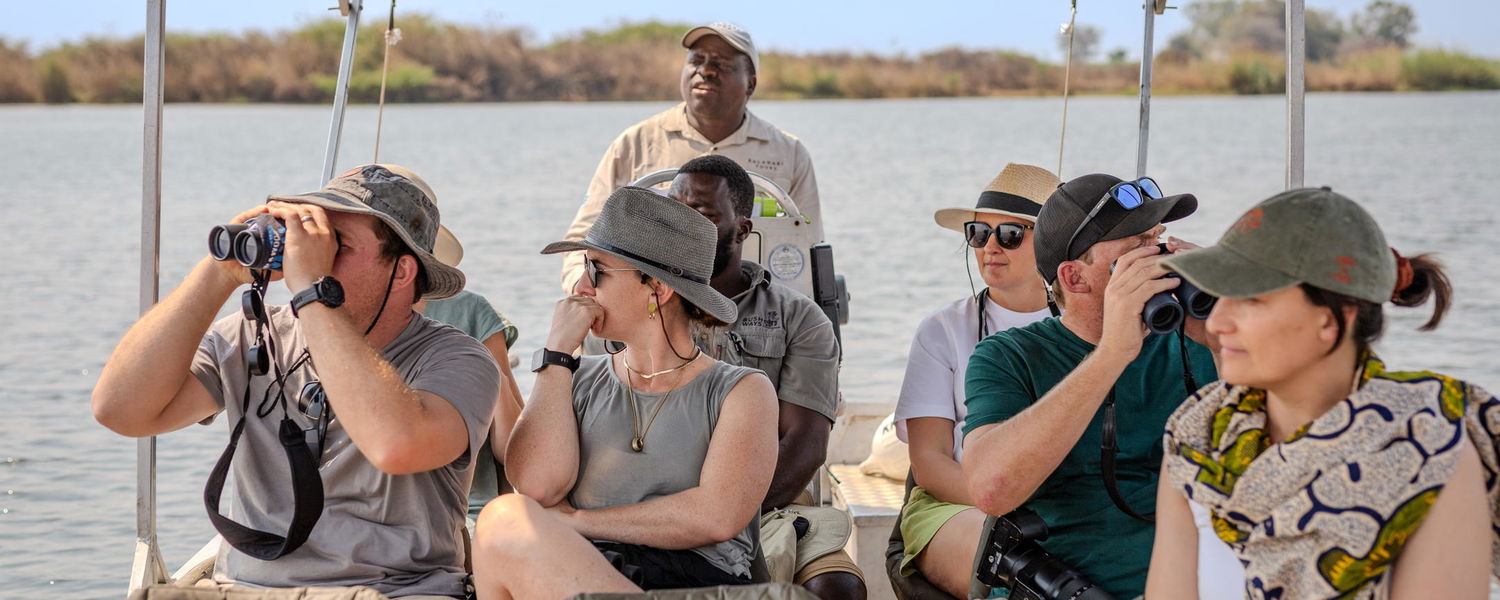
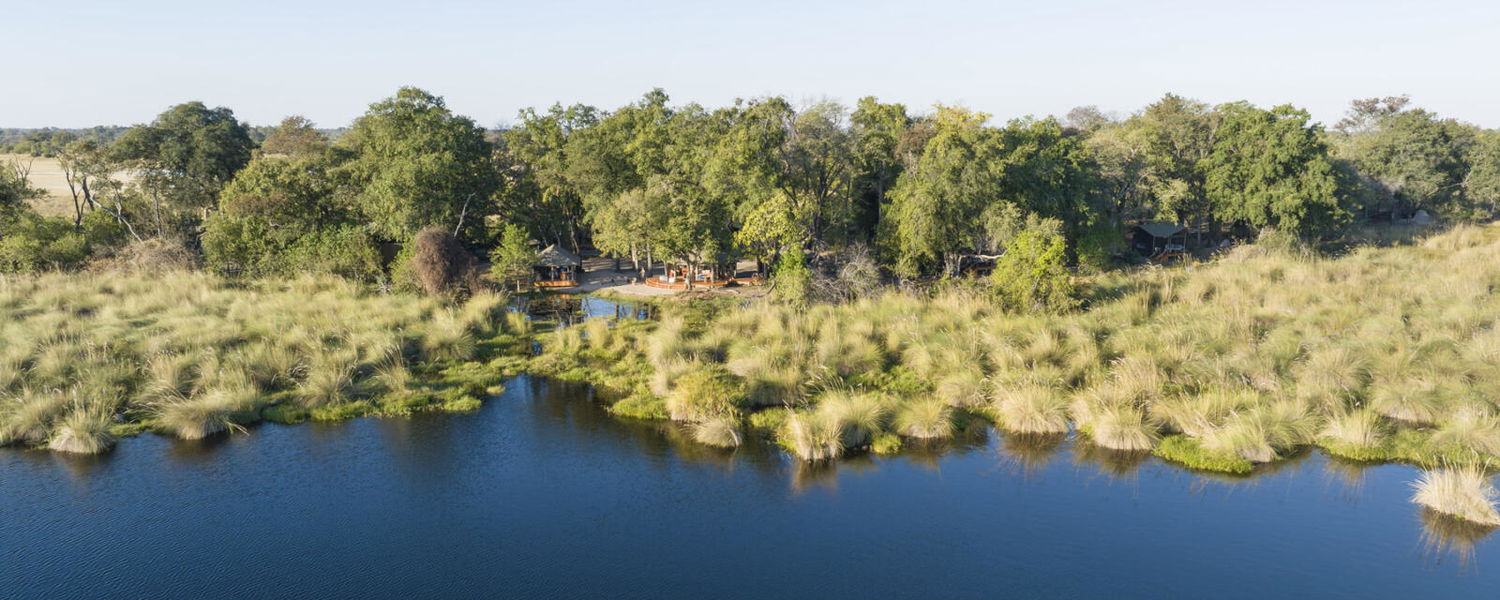
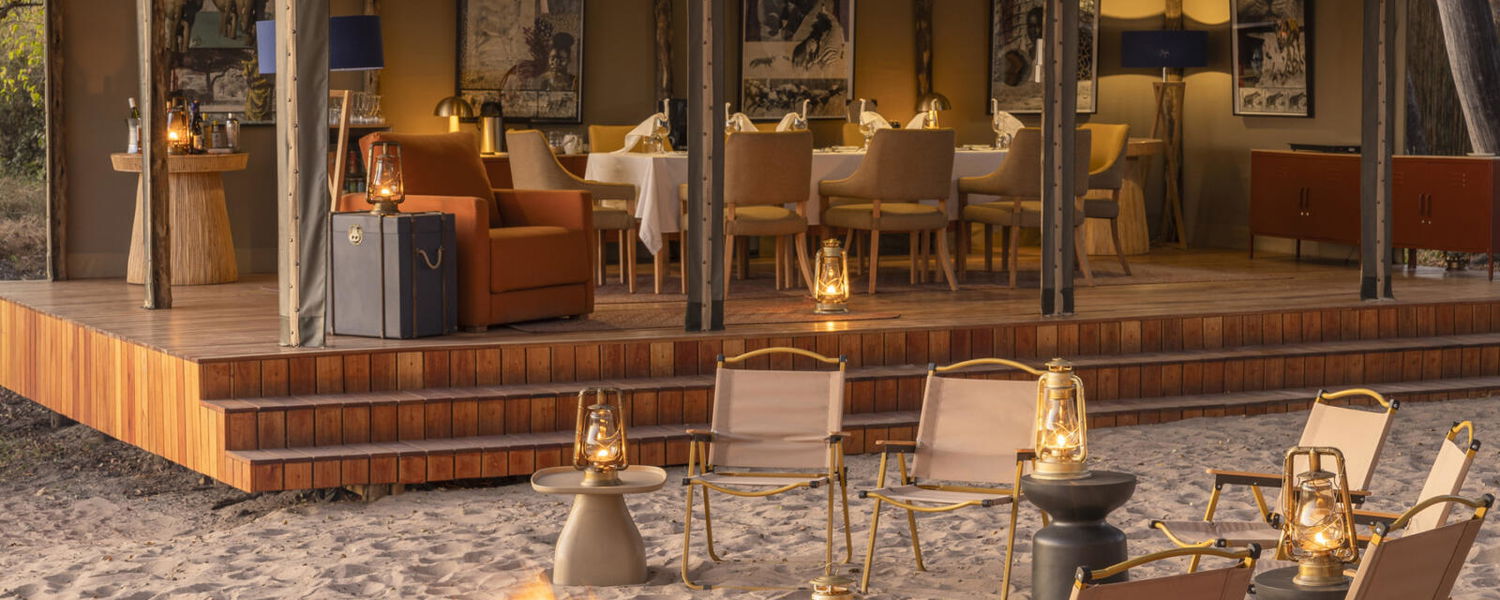
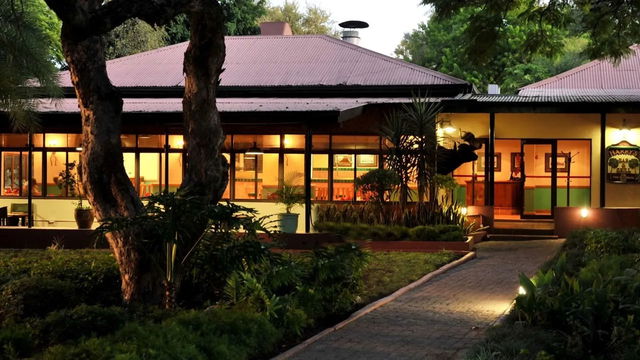
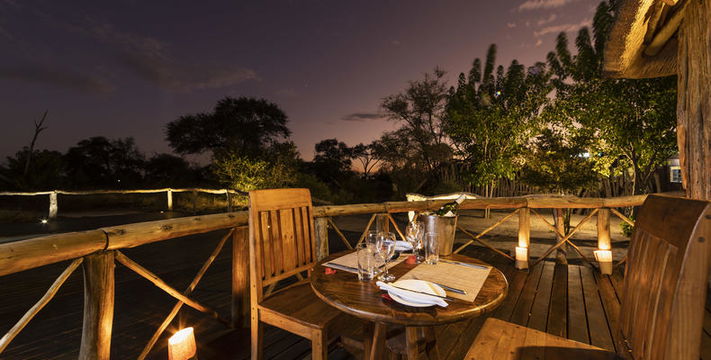
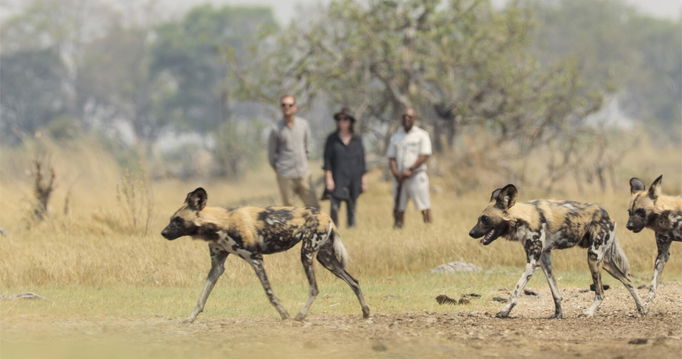
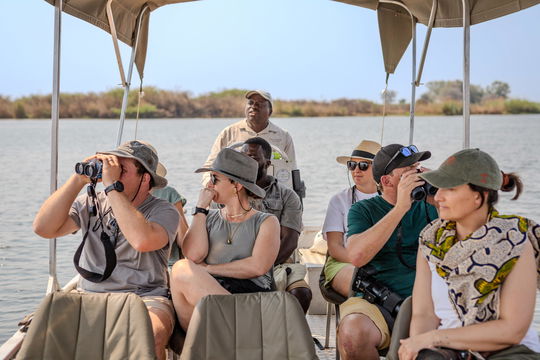
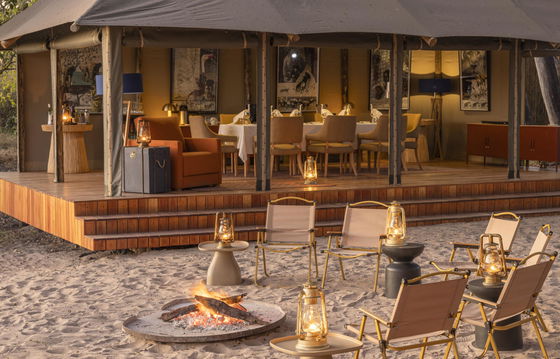
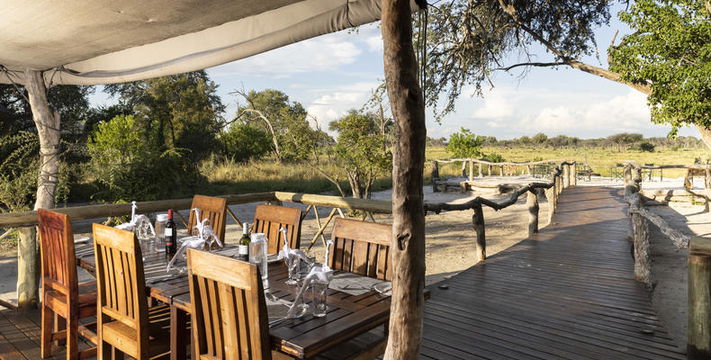
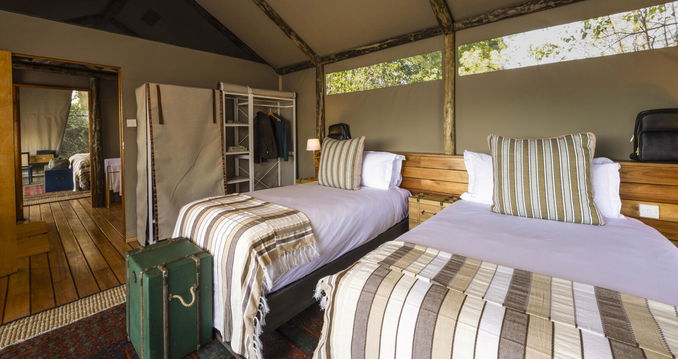
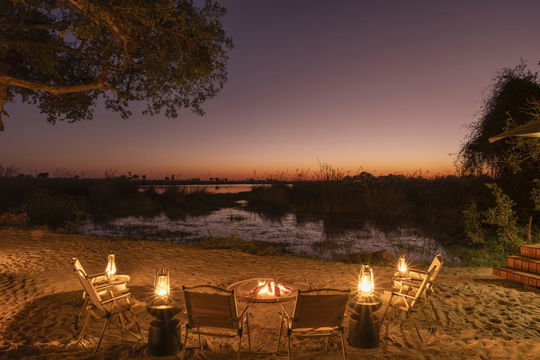
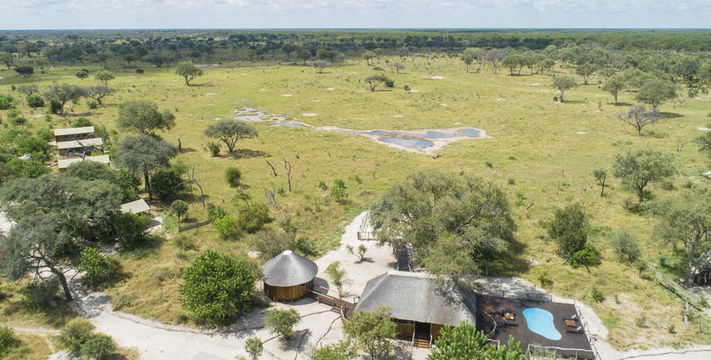
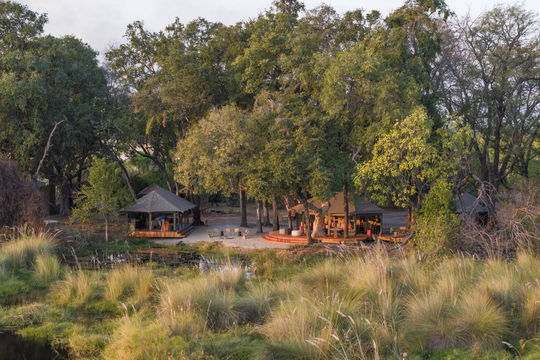
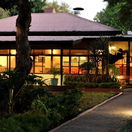
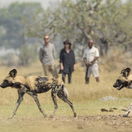
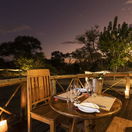
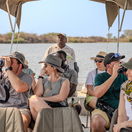
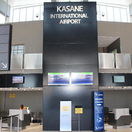
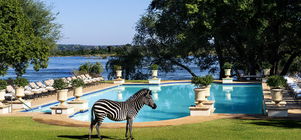
Share This Page